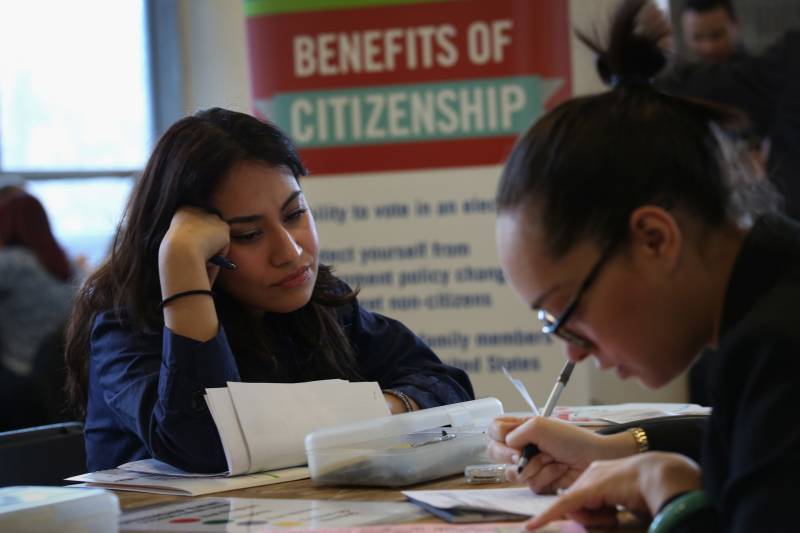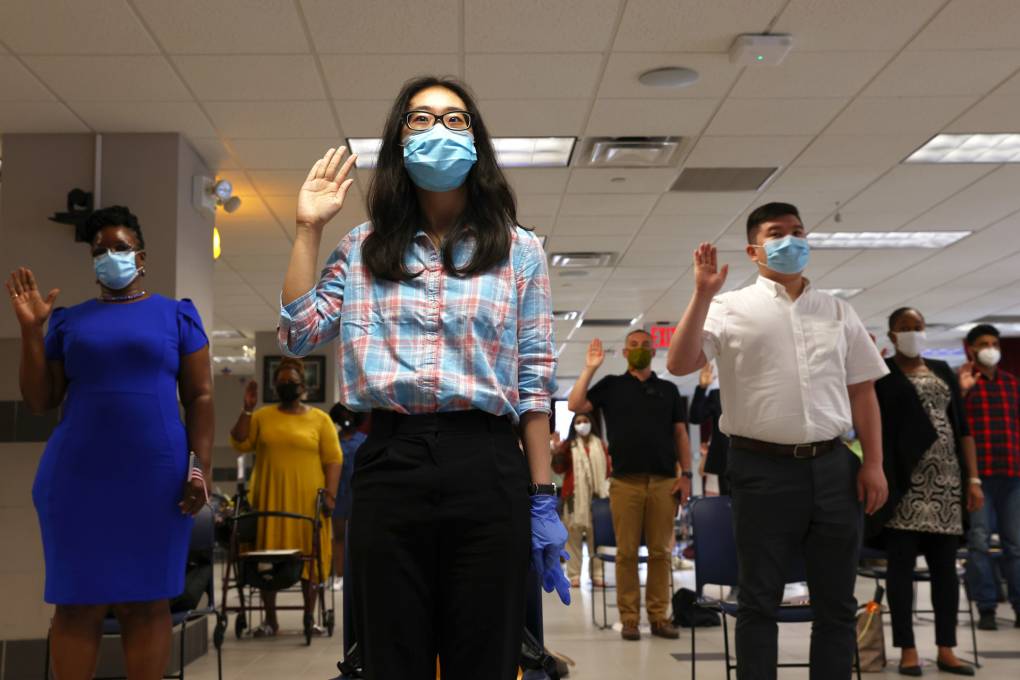After DHS proposed most of the changes back in November, many raised concerns eligible immigrants would be discouraged or priced out from U.S. citizenship and other petitions. But DHS largely dismissed those public comments.
“DHS believes that immigration to the United States remains attractive to millions of individuals around the world and that its benefits continue to outweigh the costs noted by the commenters,” according to the rule.
In California, more than 2.2 million immigrants are eligible to become U.S. citizens, the most of any state nationwide.
The current cost of applying, $725, is a barrier to many low-income immigrants who are eligible to naturalize as American citizens.
USCIS may waive the fees associated with processing an application if the individual proves they are unable to pay. Between 2013 and 2016, the agency approved 2 million requests for fee waivers, foregoing more than $1 billion in revenue, according to the agency.
Under the new rule, only victims of domestic violence or severe human trafficking crimes and other vulnerable populations who are very low income will be eligible for fee waivers. Green card, naturalization and other applicants will no longer have the option of fee exemptions regardless of their income level, while facing dramatically higher charges.
“The increases are sending a really loud message that there is a paywall to receive immigration benefits,” said Elena Fairley, programs director at Mission Asset Fund, a nonprofit in San Francisco that provided 0% interest loans to hundreds of people to apply for U.S. citizenship last year.
“And that combined with other policies from the current administration, is making it exceedingly difficult for people to become citizens in this country and participate fully,” she added.
Fairley said her organization expects more immigrants will need financial help to afford application fees, but she anticipates raising funds to cover those loans will become more difficult because of the pandemic.
Immigrants have faced deeper job cuts than U.S.-born workers during the COVID-19 recession: a 19% drop in employment compared to 12%, according to the Pew Research Center. In California, UC Merced researchers estimate 688,000 non-citizens lost jobs during the first weeks of the pandemic, with the highest impact among immigrant women.

